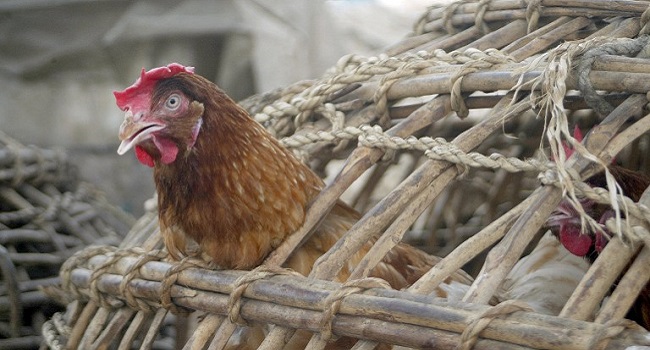
The Lagos State government has emphasised the need for members of the public to ensure and maintain adequate personal and environmental hygiene at all times as part of measures to curb the spread the avian influenza virus popularly known as bird flu among chickens and other birds.
This is coming several weeks after the bird flu outbreak was reported in the State that is Nigeria’s commercial city with over 15 million population.
In a statement, the State’s Commissioner for health, Dr. Jide Idris, advised members of the public to avoid contact with chickens, ducks or other birds, including their feathers, faeces and other wastes in areas where the disease is known to exist.
Dr. Idris further stressed other measures that could help halt the spread of the bird flu disease to include; washing of hands with soap and water frequently and thoroughly, particularly after touching any poultry, eggs or bird meat and keeping children away from sick or dead poultry and birds.
“Please, avoid slaughtering and cooking of sick or already dead poultry birds, ensure that poultry products and eggs are thoroughly cooked before eating, ensure rearing of poultry far from dwellings and sleeping areas and make sure cooking surfaces are well cleaned before and after preparation of poultry products,” Idris advised.
The Commissioner explained that the H5N1 strain of the avian influenza virus presently circulating among chicken and other birds in the state was very infectious and had caused deaths of millions of chickens and other birds, stating that the strain had previously killed 166 humans in 11 countries during the 2007 outbreak.
“Avian influenza is spread by direct and indirect contact with sick or dead chicken, eggs and also through handling and slaughtering of live infected poultry birds. For now, there is no case of human infection in the state, only loss of chickens and other birds have been reported; human death has, however, been recorded with this present outbreak in some African countries,” he stated.
Dr. Idris listed initial symptoms of the disease to include; high body temperature and fever above 37.5Oc, cough, sore throat, runny nose, difficulty in breathing, diarrhea, vomiting, abdominal pain, chest pain, bleeding from nose and gum, hoarseness of voice and bloody sputum.
The Commissioner noted that the Ministries of Health and Agriculture are currently working together to stop the spread of the bird flu disease and prevent the transmission to humans.
He then pleaded with the general public to be watchful and report any casualty with a history of having been in direct or indirect contact with dead poultry or confirmed case of the disease to the health and agricultural departments of the nearest Local Government Area office, or to the Directorate of Disease Control in the State Ministry of Health. the commissioner stressed that poultry farmers should report high death rates among poultry birds to the Ministry of Agriculture.
“Health workers are advised to be on the alert and report suspected or probable cases with history of contacts with poultry. They are also enjoined to use personal protective equipment when in contact with such cases,” Dr. Idris said.
While urging members of the public to report any suspected case of the disease to the nearest health facility, the Commissioner said the following numbers: 08023169485 and 08023213333 could be reached for more information about the disease.

